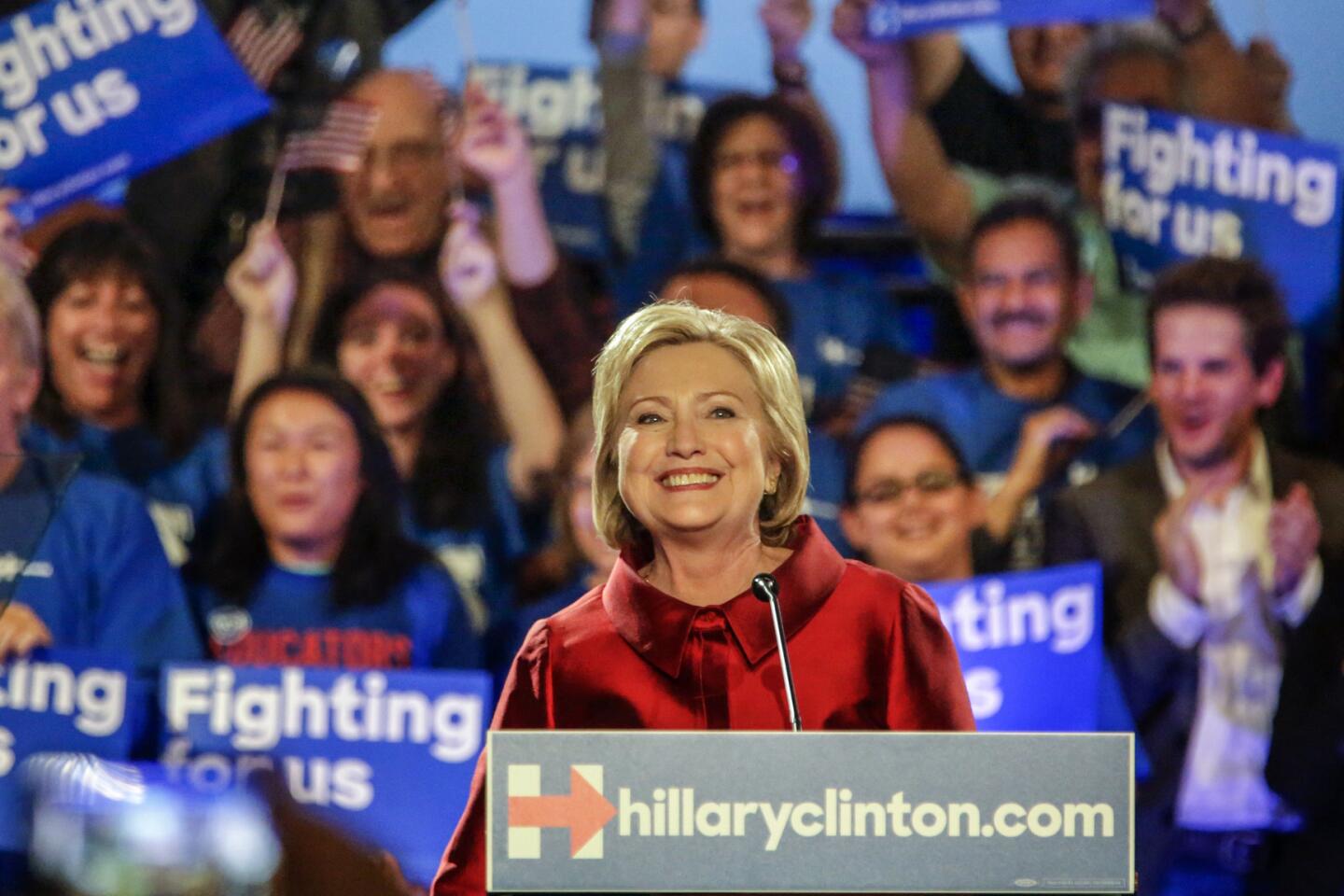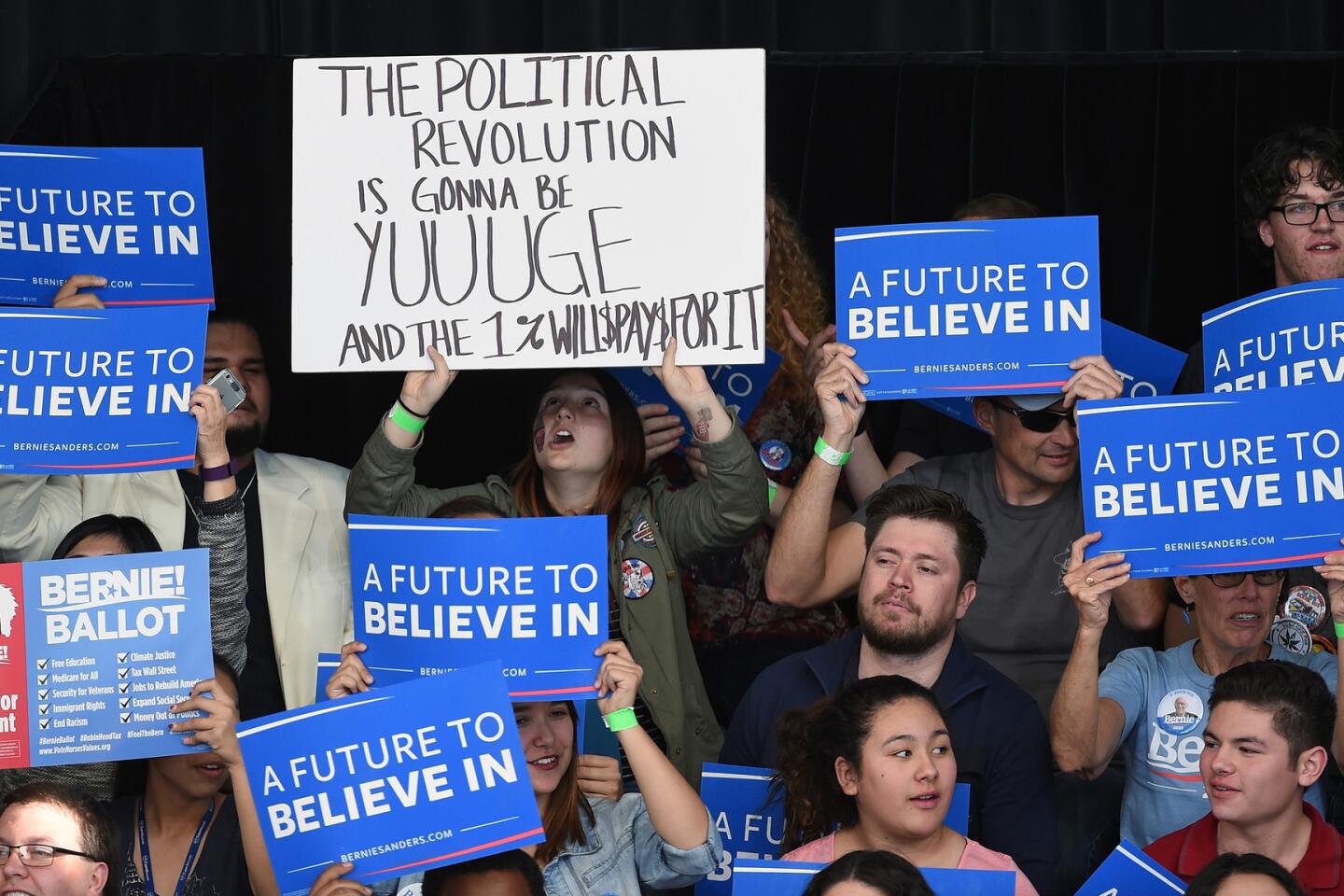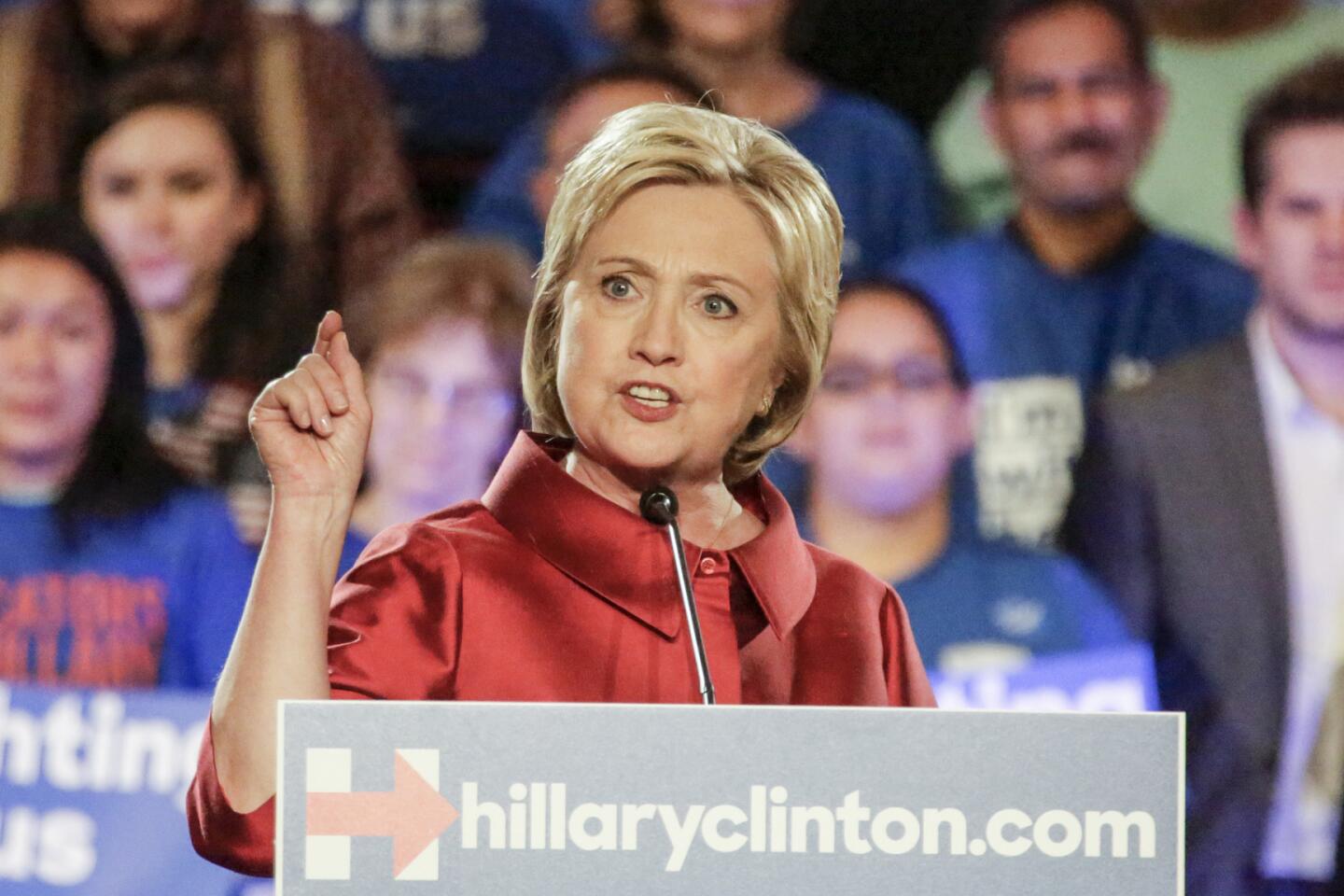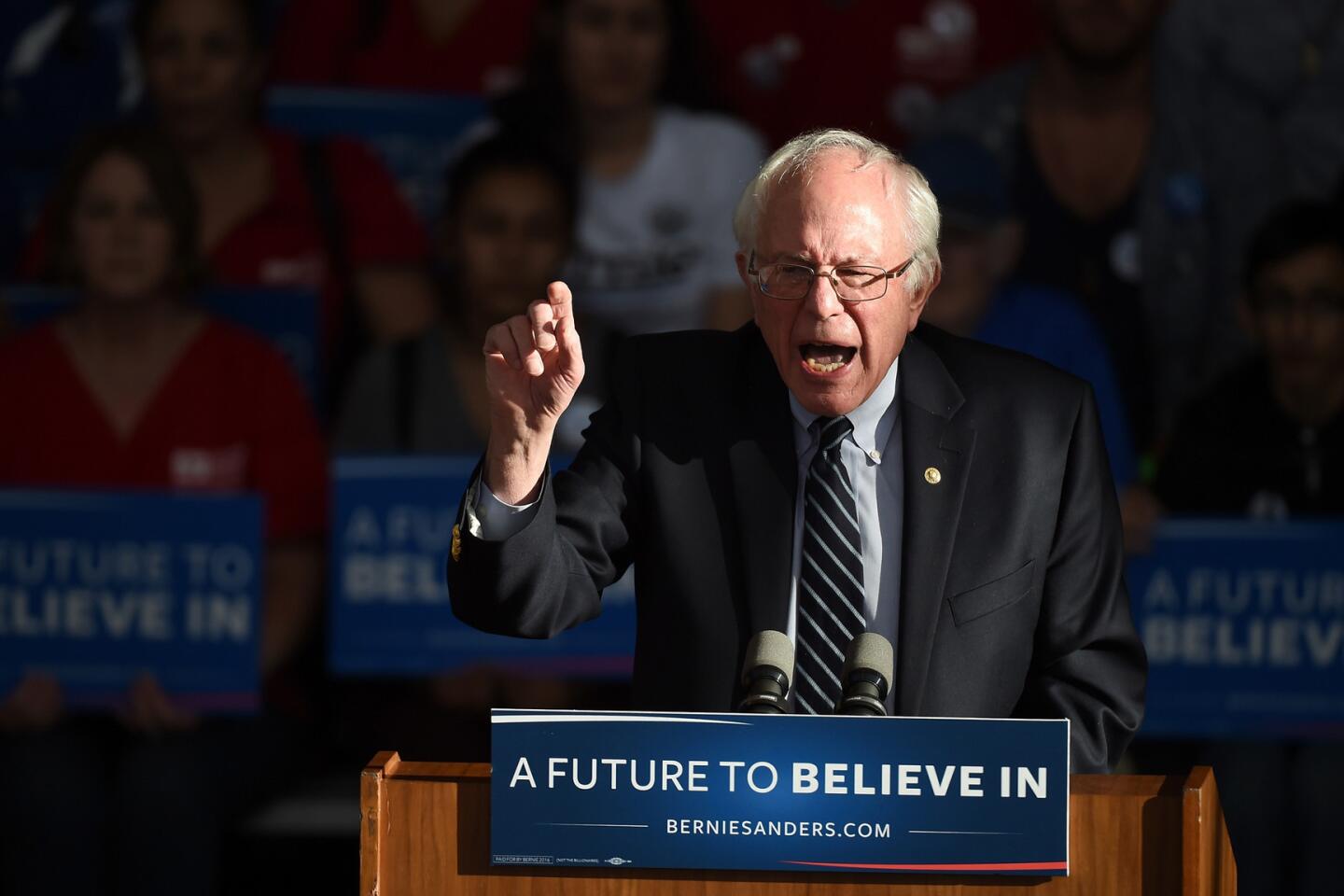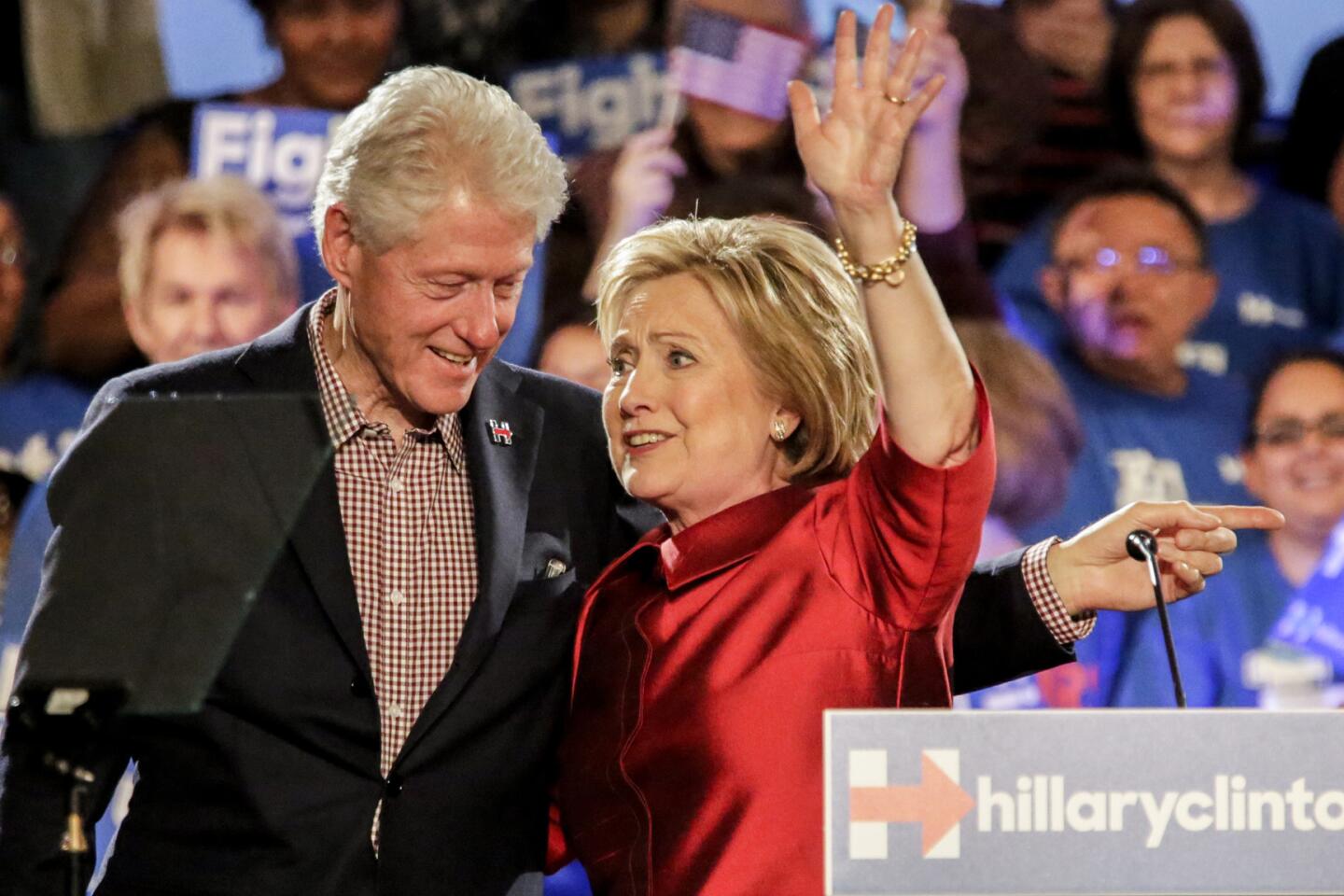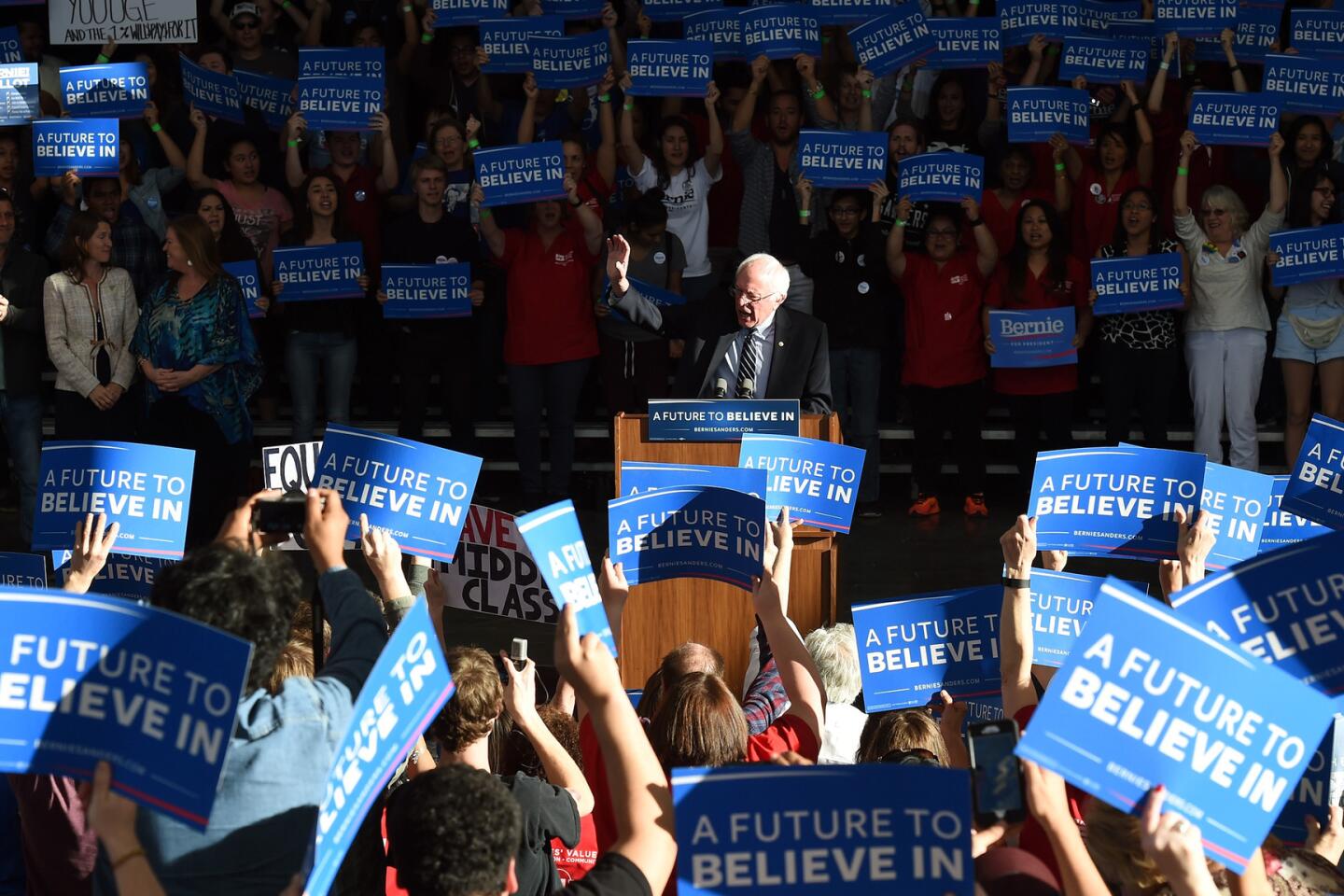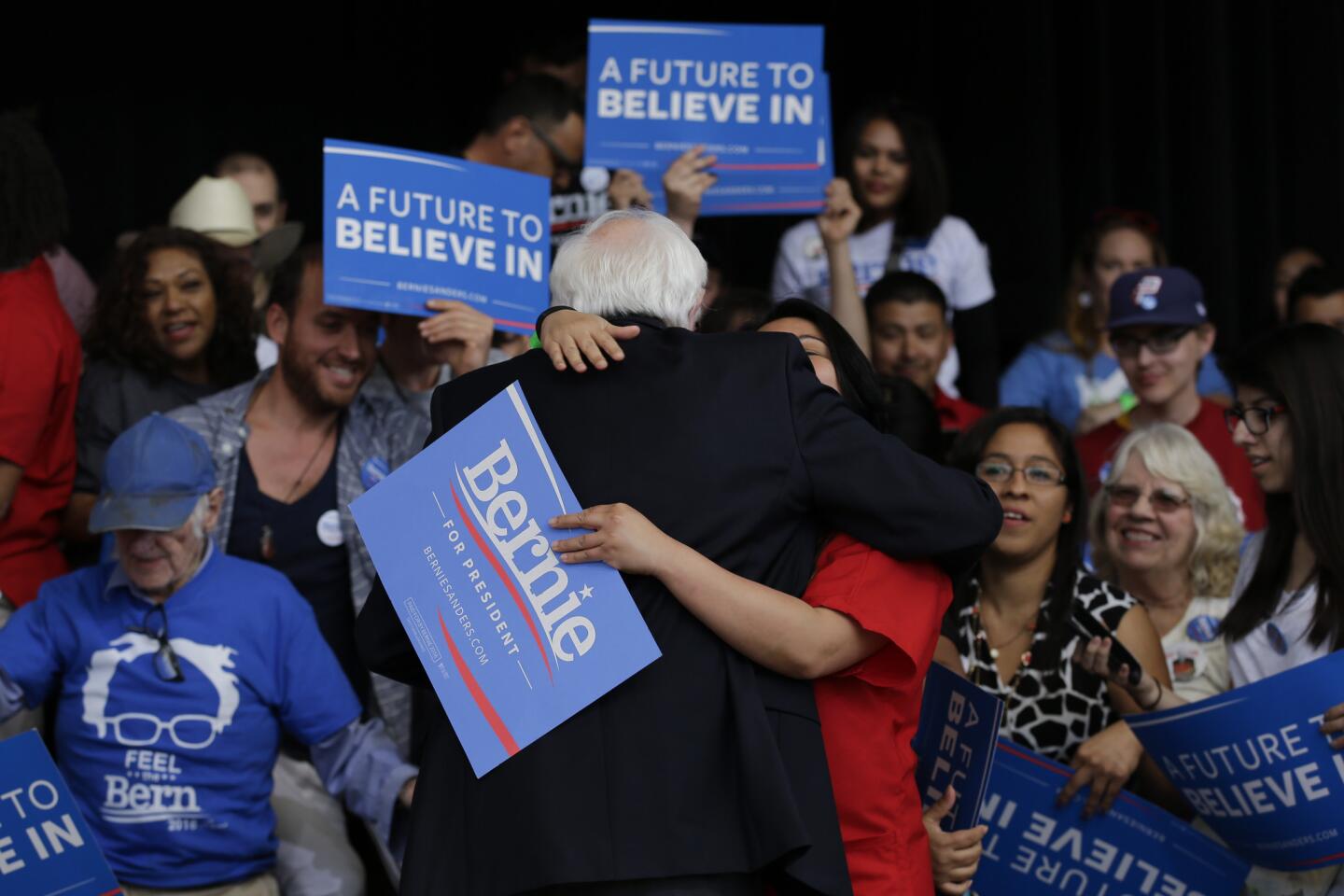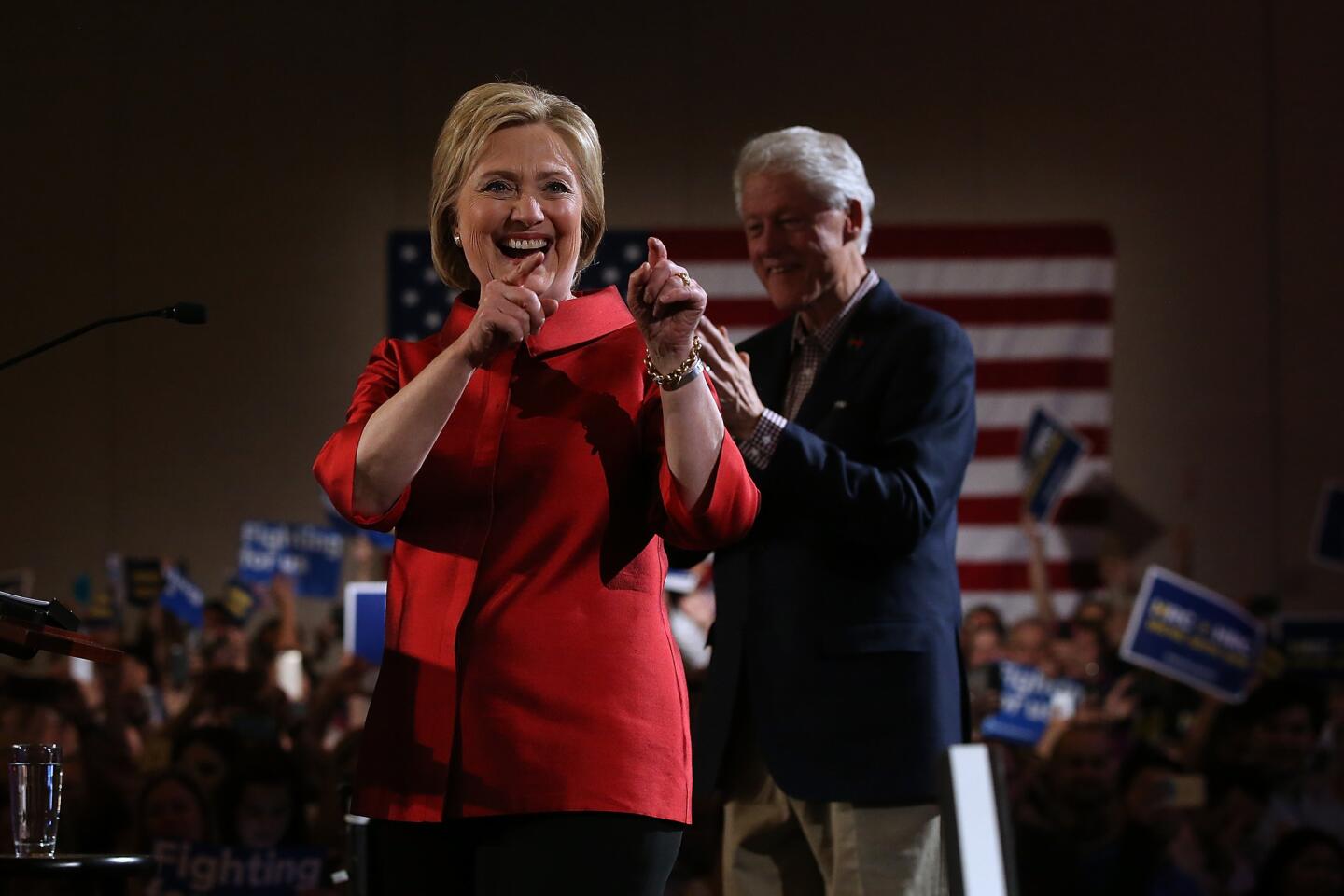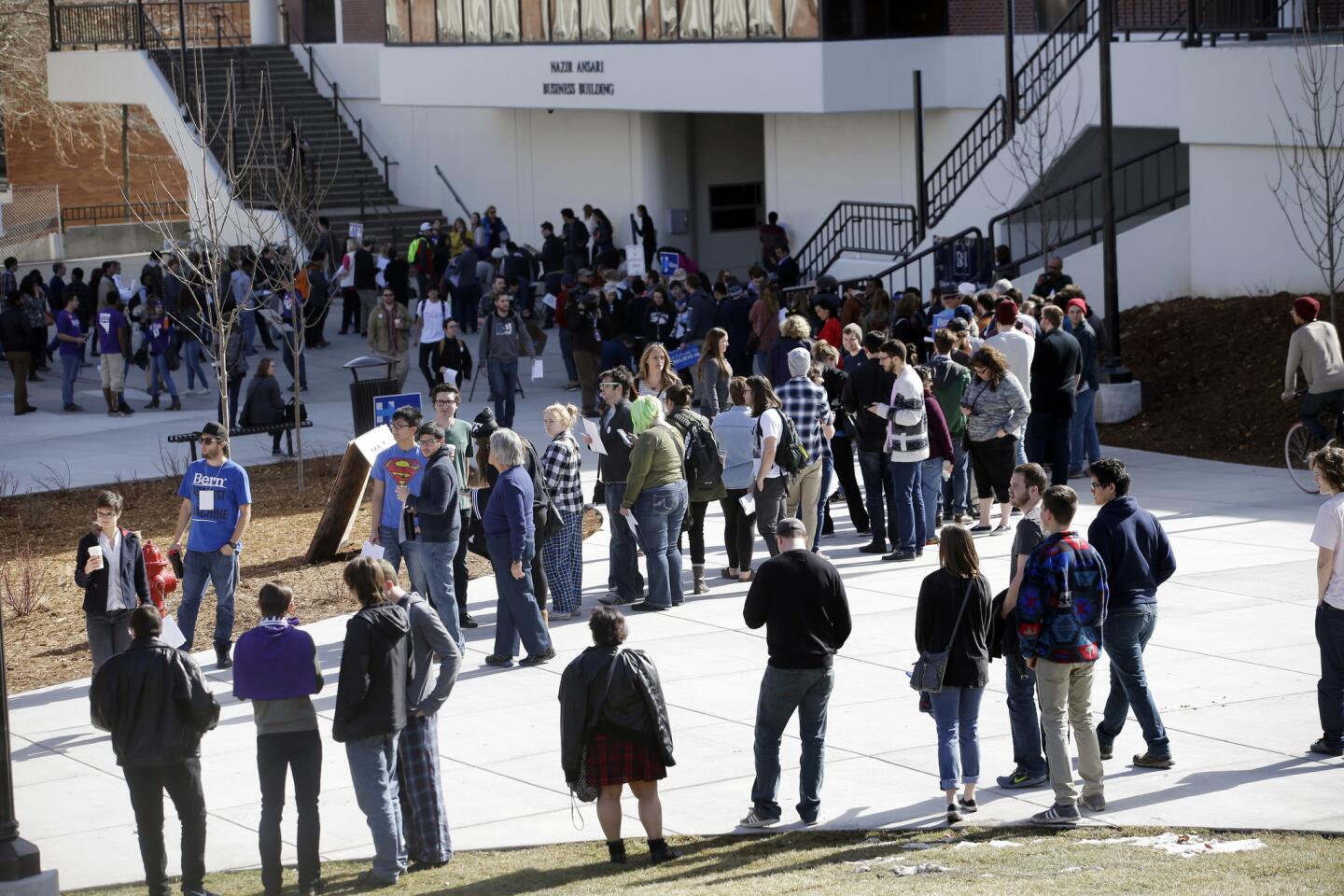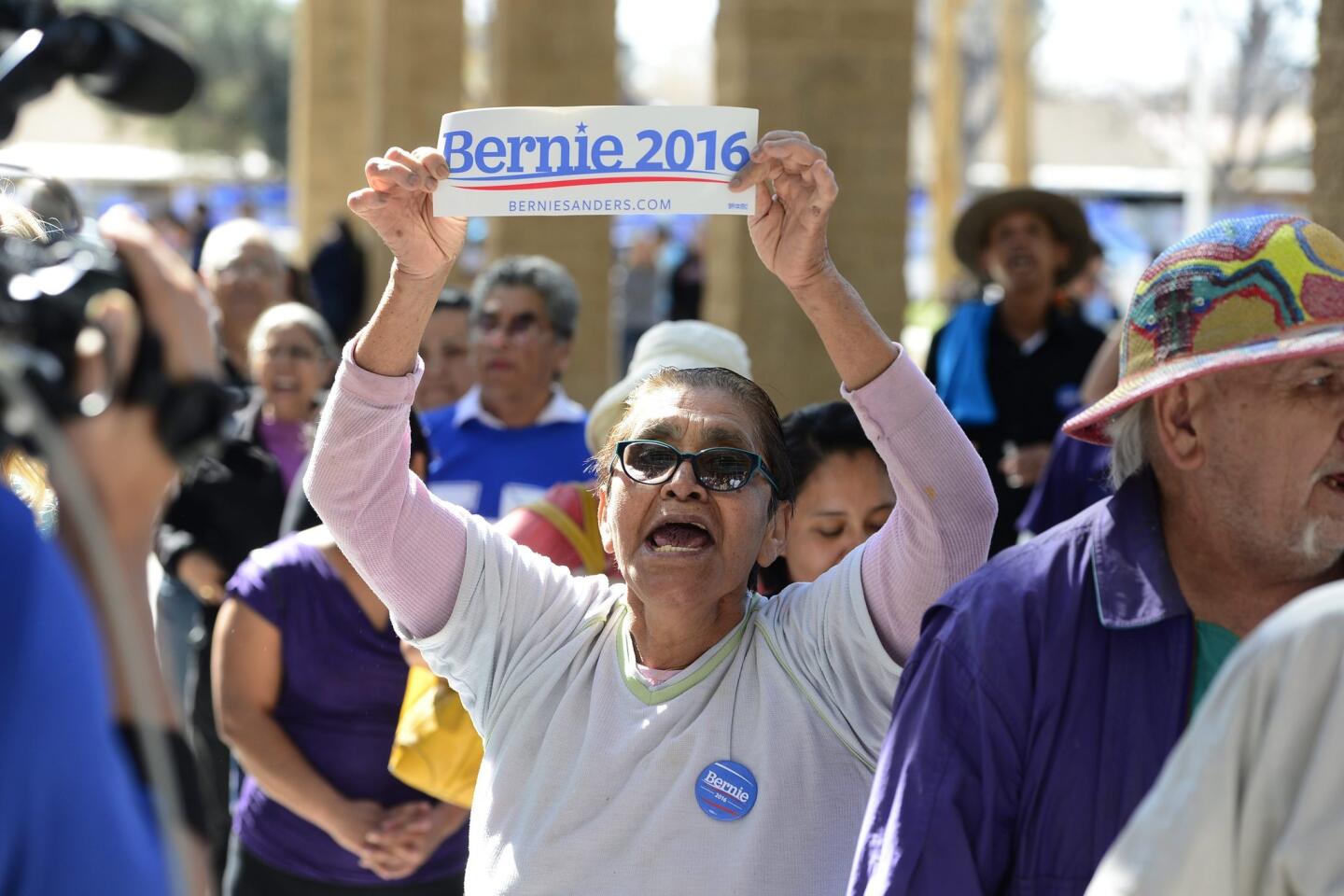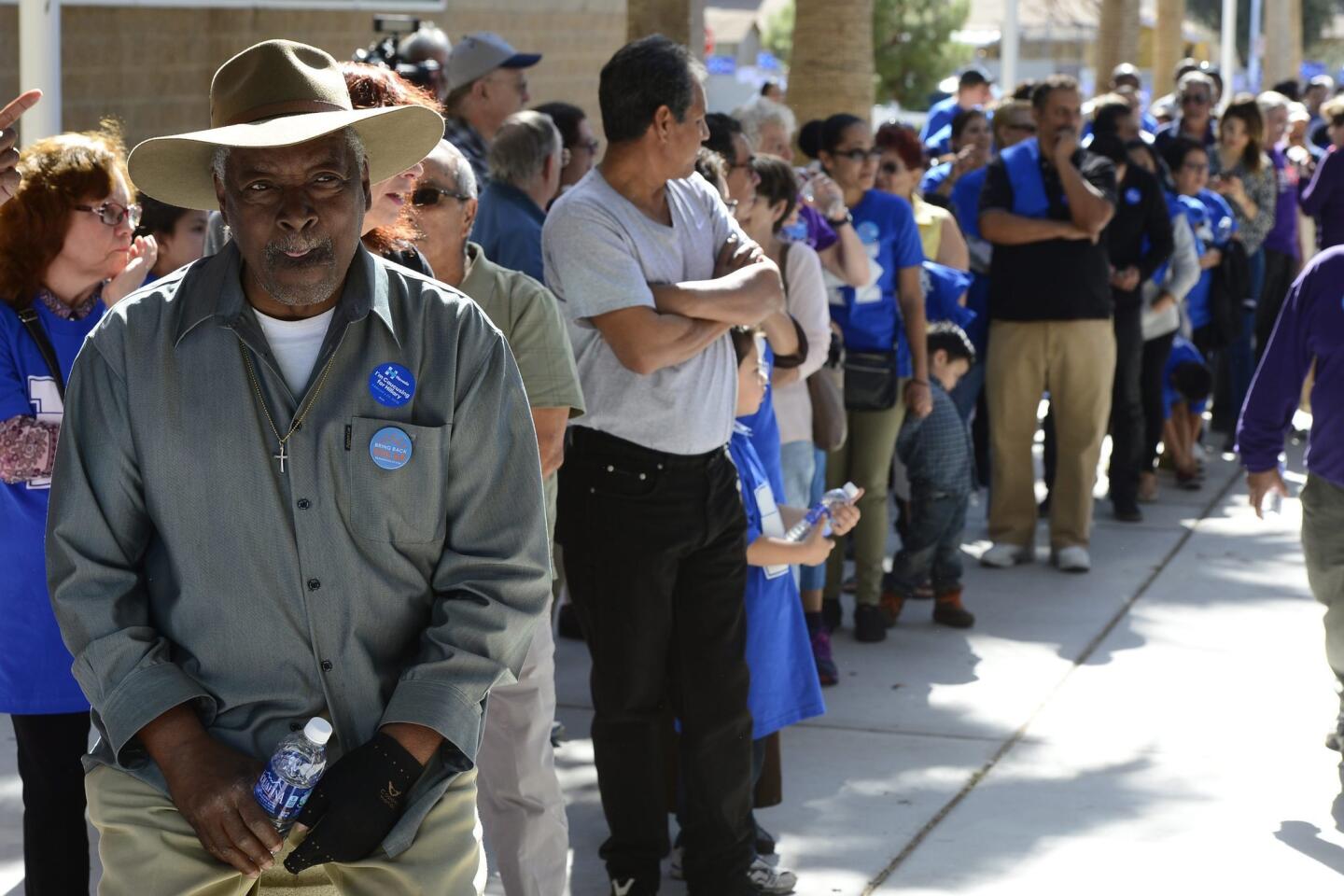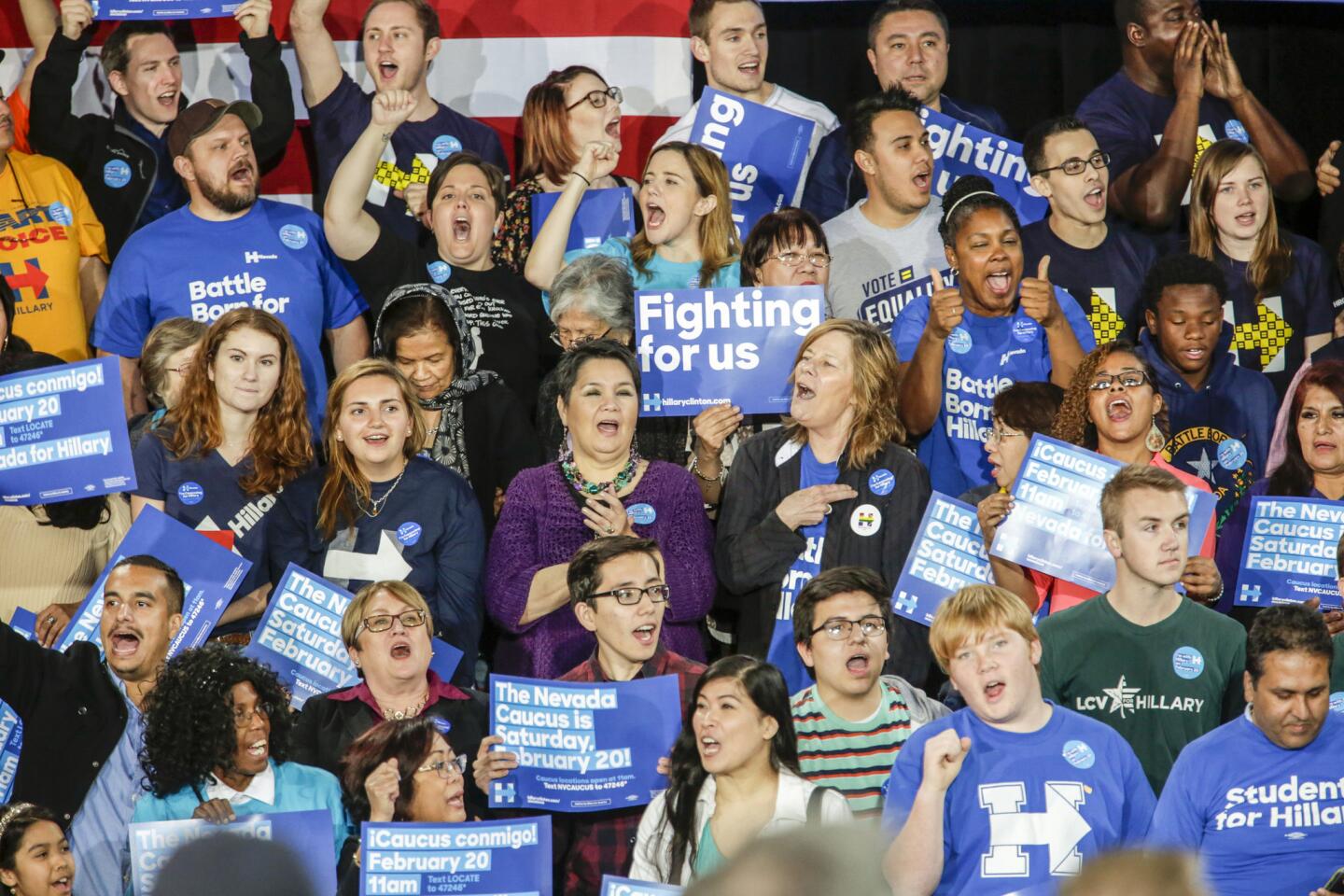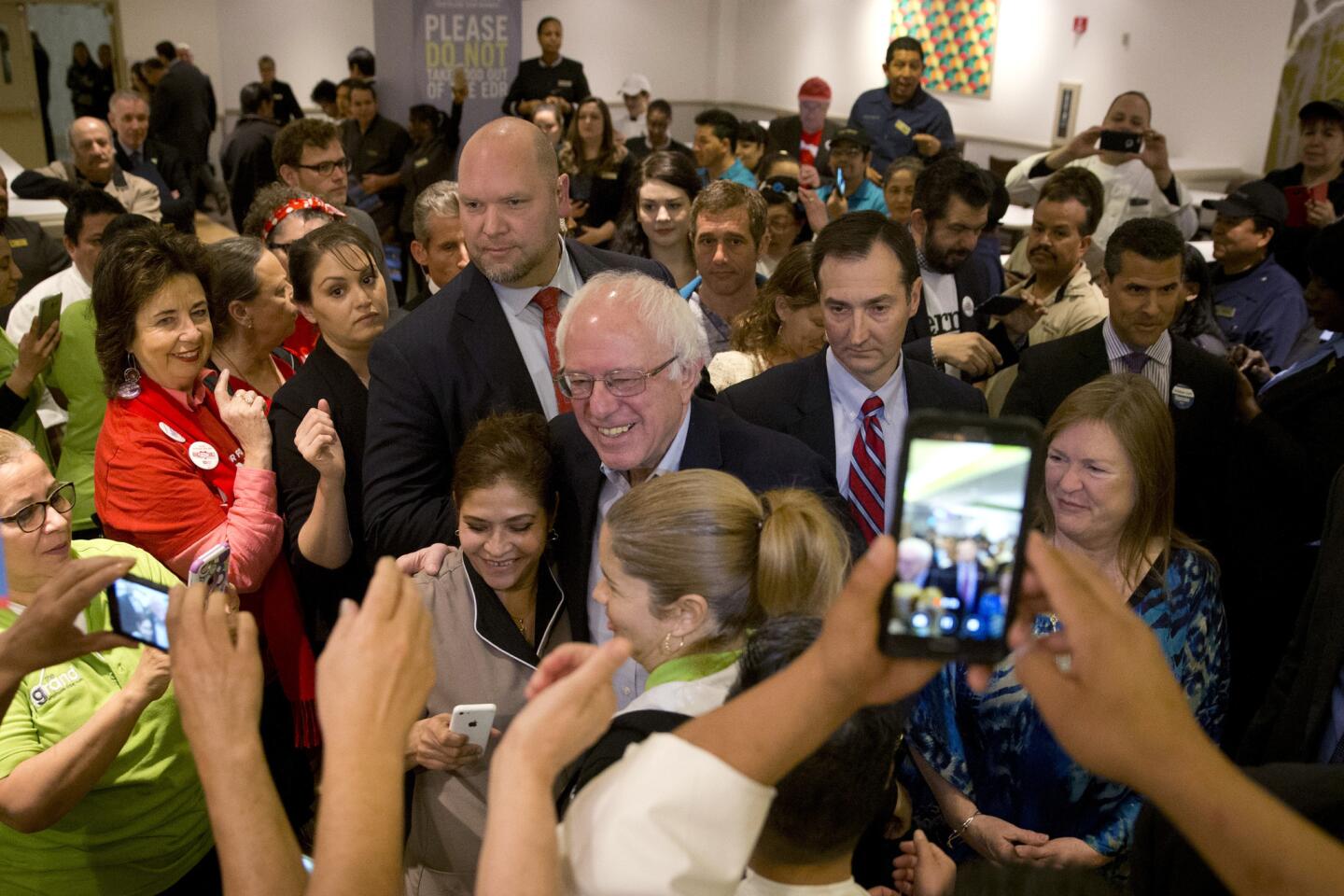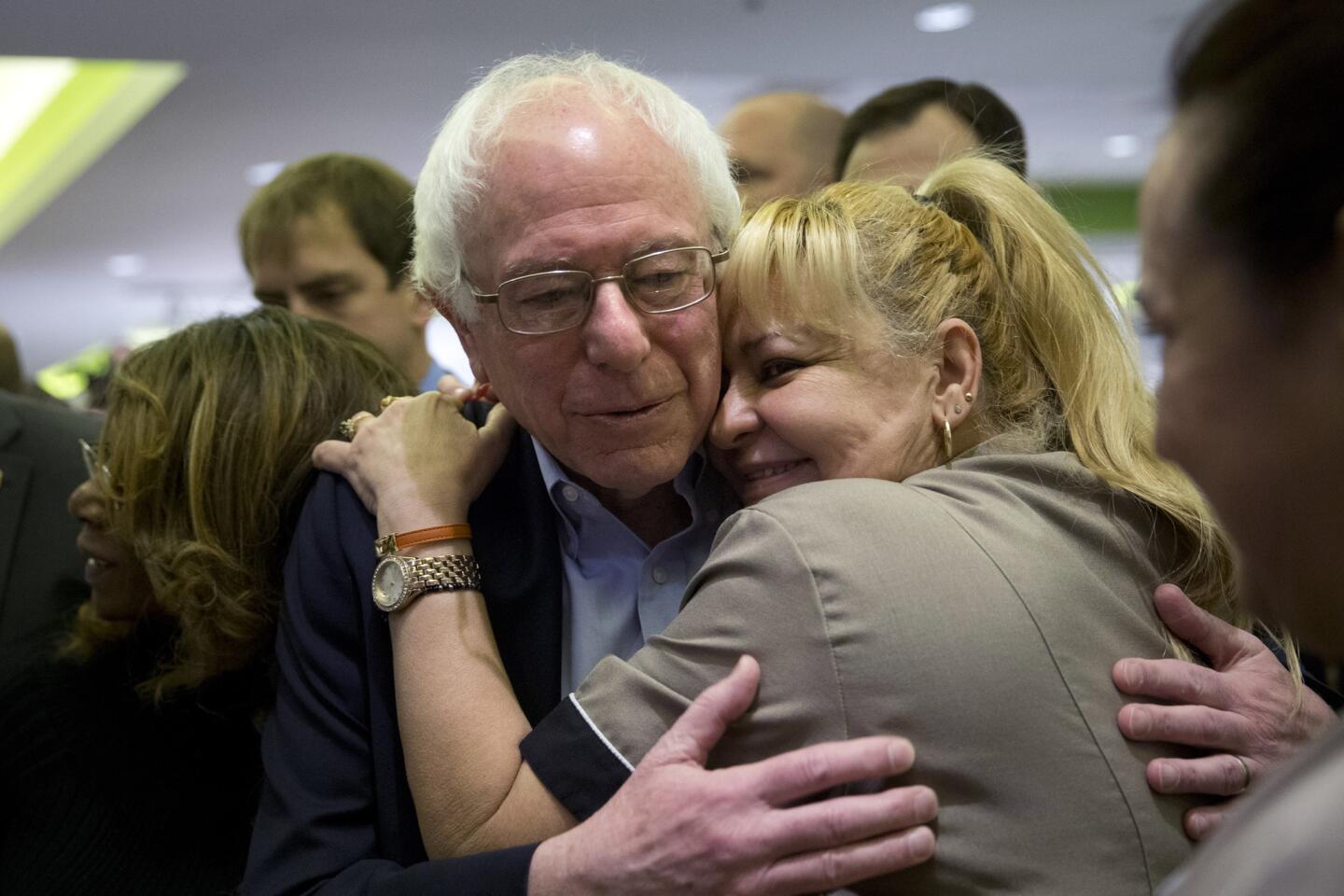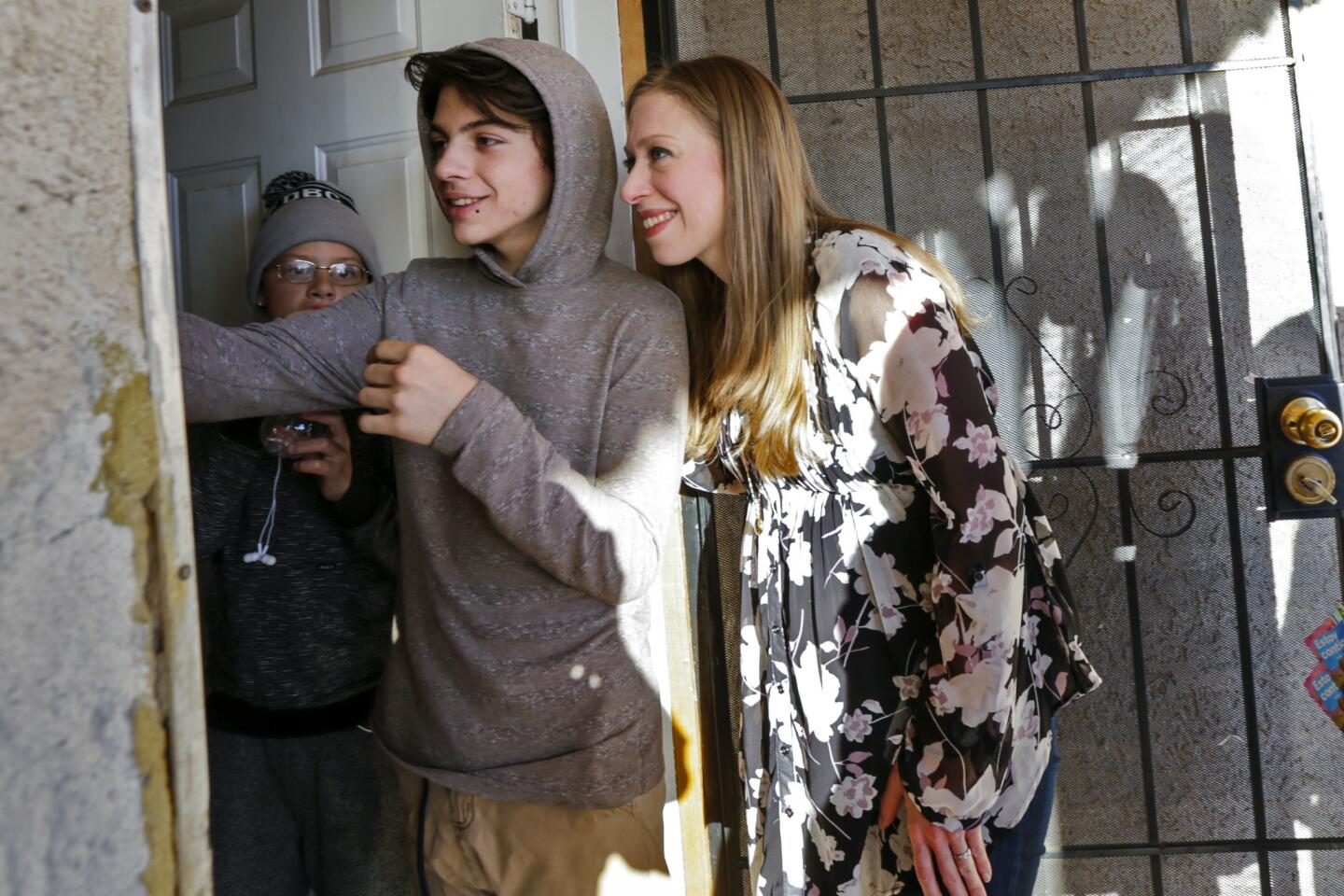Victory in Nevada caucuses sets Hillary Clinton back on track for Democratic nomination
- Share via
Reporting from Las Vegas — Hillary Clinton’s victory Saturday in the Nevada caucuses puts her back in command to win the Democratic presidential nomination.
But it was close enough that Bernie Sanders has every incentive to stay in the race for some time, denying Clinton and the party establishment the swift resolution they hoped would let them turn their full attention to the general election in November.
The win brought enormous relief to Clinton and her supporters and should deliver a burst of momentum heading into the Democrats’ next contest, the Feb. 27 primary in South Carolina. Clinton was already a heavy favorite to win there.
More important, Clinton’s performance in Nevada could ease some of the concerns that arose among some in the party after Sanders nearly tied Clinton in Iowa and crushed her in the New Hampshire primary.
At a jubilant appearance at Caesars Palace in Las Vegas, Clinton alluded to those concerns.
“Some may have doubted us, but we never doubted each other,” she told a ballroom full of cheering supporters. “This one is for you.”
She also made indirect reference to Sanders and pressed an argument she will likely make as the campaign moves on. It is not enough, she said, simply to give voice to the anxiety and frustrations many voters feel. “Americans have a right to be angry,” she said. “But we’re also hungry for real solutions.”
Nevada was supposed to be a safe harbor for Clinton. Its population is diverse — a notable contrast with Iowa and New Hampshire, which are predominantly white — and Clinton won the popular vote in the 2008 caucuses when she ran for president the first time, drawing strong support from minorities.
It appeared that coalition came through for Clinton once more.
She won overwhelmingly Saturday among nonwhites, in particular black voters, and carried the women’s vote by a sizable margin. The strong affinity for her among African Americans should help as the race moves forward through a number of states with large black populations.
African Americans could make up half of the South Carolina electorate, giving Clinton a strong advantage. Three days later, on Super Tuesday, several other states with large black populations — including Alabama, Arkansas, Georgia and Tennessee — will vote.
Still, the race in Nevada was much more competitive than expected, and even in victory there were warning signs for Clinton, including a sizable generation gap. Once more, the senator from Vermont far outpolled Clinton among younger voters, who were a key part of the Obama coalition the former secretary of State hopes to reassemble to win the White House.
“The thing Democrats need to worry about is if Bernie’s not the nominee, will those 20-somethings say, ‘No, thank you,’ take their iPhones and stay home?” said Paul Maslin, a Democratic pollster who is neutral in the party’s nominating fight.
“It’s better to win than lose,” he added. “But this is serious stuff.”
The contest in Nevada developed late and tightened swiftly. Polls had showed Clinton with an enormous lead as recently as last month, a gap that closed when the financially flush Sanders poured resources into the state and stunned Clinton in Iowa and New Hampshire.
A clearly disappointed Sanders conceded defeat in brief remarks to supporters in Henderson, a suburb just outside Las Vegas.
“We have a corrupt campaign finance system that is undermining American democracy and must be changed,” he told them.
Looking ahead to the sprawling set of races on March 1, Sanders elicited boos when he warned that Clinton supporters would spend heavily to ensure his defeat.
“We are going to be taking on a very powerful and well-funded super PAC — a super PAC that receives significant amounts of money from Wall Street and wealthy special interests,” he said, using the shorthand for the political action committees he scorns.
With little separating the candidates on the issues, the campaign in Nevada essentially amounted to a personality contest and a question of who Democrats believed would do a better job implementing similar goals.
Both candidates, for instance, vowed to make immigration reform a priority as president and support a pathway to citizenship for millions of people who came to the country illegally but have been law-abiding residents.
Each decried the Wall Street machinations that helped lead to the Great Recession — a downturn that hit Nevada far harder than most states — and promised to crack down on its excesses.
Both called for increasing the minimum wage and making college more accessible, though Sanders went further, calling for a bigger boost than Clinton and proposing free tuition for all.
The fight, as framed by the candidates and their supporters, was over which candidate was more likely to deliver on the promises.
At Rancho High, a school in North Las Vegas where Clinton launched her Nevada campaign last spring with an immigration roundtable, a dozen pro-Clinton volunteers stood outside, trying to sway voters with last-minute appeals as they entered the caucus site.
Shelia Jackson, who came from San Diego to canvass for Clinton, said she had a message for voters enticed by Sanders’ calls for a political revolution. “Don’t get burned by the Bern,” she said.
“Just because someone says it doesn’t make it true,” she said of Sanders’ promises to ease income inequality and make college tuition-free.
Clinton said much the same as she stepped up her Nevada appearances in the days before the caucuses. She suggested many of Sanders’ proposals — like universal healthcare and free college — were appealing in theory but difficult, if not impossible, to implement.
She described the longtime political independent as a latecomer to the Democratic Party and the progressive causes she called her life’s work. Sanders calls himself a democratic socialist but caucuses with Democrats in Congress.
Sanders sought to depict Clinton as too beholden to Wall Street, which she represented as a senator from New York, and too much a part of the political establishment to bring about the massive changes the political system needs.
The country could pay for benefits like free college by raising taxes on Wall Street and the very well-to-do, he said, arguing they have accumulated far more than their fair share of wealth.
That fist-shaking message was enough to propel Sanders from far behind in opinion polls and nearly overtake Clinton.
“Bernie talks about a political revolution. It’s time,” said Brian Sherrett, a retired computer engineer in Las Vegas who said he rarely votes but came out Saturday to caucus for Sanders. “It has to be time.”
Times staff writers Michael Finnegan and Kate Linthicum in Las Vegas and Kurtis Lee in Pahrump contributed to this report.
Follow @markzbarabak for national & California politics.
ALSO
Lopez: The presidential race is so awful you can’t look away
Hillary Clinton faces one problem she didn’t expect: Money
Trump wins South Carolina primary: ‘Let’s put this thing away’
More to Read
Sign up for Essential California
The most important California stories and recommendations in your inbox every morning.
You may occasionally receive promotional content from the Los Angeles Times.
